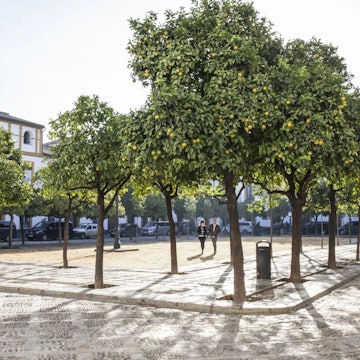
Too soon? 5 questions to ask when disaster strikes your travel plans.
Jan 31, 2013 • 4 min read

Has a disaster ever forced you to rethink travel plans drastically?
When calamity strikes, it’s tough to think of yourself. Earthquakes, hurricanes and civil wars cause unimaginable devastation and tragedy for the people who are directly affected. In comparison, your itinerary feels insignificant.
But as the dust settles, you’ll need to make a plan. Should you cancel your well-earned holiday? Should you look for an alternative destination? Or should you just suck it up and plough on through?
How you respond should hinge on the answers to the following questions:
1. Is it safe?
Your safety is paramount. This is not the time to rely on hearsay. While Twitter is a great source for breaking news, it’s not the perfect place to assess an on-the-ground situation (unless you have enormous faith in your followers).
Your first port of call is your government’s foreign-travel website. Official sites are updated frequently, and their warnings often carry insurance implications. It’s important to understand that these sites will naturally err on the side of conservatism – it’s their responsibility to keep you safe, not to ensure that you have an adventure!
Here are some well-maintained sites from English-speaking countries: travel.state.gov (USA), Foreign Office (UK), Smartraveller (Australia), Safe Travel (New Zealand), Foreign Affairs and International Trade (Canada).
In addition to the government sites, you should check out reputable news sources and get updates from travellers on the ground. The Thorn Tree travel forum is an excellent place to get firsthand accounts of the situation for travellers - posts relevant to travellers came up quickly for Hurricane Sandy in Cuba and on the US's East Coast and immediately after the Japan earthquake and tsunami).
If you do decide to go based on all available information, it’s wise to take out an appropriate travel-insurance policy.
2. Why are you going?
This is a more philosophical question, but it will have profound effects for your trip.
If you’re looking for a stress-free holiday, you’ll want to reconsider your plans. Even after a disaster has passed, affected areas are usually engaged in rebuilding and adjusting. This will cause a degree of chaos and unpredictability. Choosing an alternative destination may be the best option.
If you’re looking for adventure and a chance to connect with locals, then proceeding with your trip is a possibility. However, you still need to consider your motivation. Visiting a place in the aftermath of calamity may be thrilling, but is it appropriate? You may want to balance your penchant for excitement with respect for the people who will be serving as your hosts. It may be the case that delaying your trip will provide as much adventure while avoiding the negatives associated with 'disaster tourism'.
3. Do your hosts want you there?
An easy way to answer 'Should I go?' is to ask 'Do people want me there?' This is where tapping into local networks – whether on Facebook, Twitter, blogs or elsewhere – can be invaluable. Are locals encouraging visitors? Are tourism boards planning campaigns? Are airlines offering sweetheart deals to lure back travellers?
If the answer to most of these questions is 'no', you might consider postponing your trip to a more appropriate time.
4. How flexible is your itinerary?
This decision is based purely on cost and convenience. If you have a flexible airline ticket that allows you to change date, or if you purchased a strong insurance policy, you can often move your travel dates. This is often the best solution – if your personal circumstances allow for it.
If you are locked into a travel schedule, your insurance company should be able to help. You may be able to book an alternative holiday to a nearby destination.
In the worst-case scenario, you may have to request refunds for all your travel bookings and begin planning your next vacation. While this can feel disappointing, keep in mind that safety and respect are higher priorities!
5. What’s the best way to help?
Every year, thousands upon thousands of well-meaning travellers head around the world in order to help. What many don’t realise is that often it’s actually harmful to replace low-paid, skilled local labour with unpaid, unskilled foreign labour. Dealing with an influx of visitors wandering around asking 'What can I do?' can add stress and overhead to a relief effort.
If you want to help, do your research. Often, the best way to start is by donating to an emergency fund whose mission you believe in and whose methods you trust.
If you have your heart set on on-the-ground volunteering, make sure that you sign up with a well-organised outfit that will prepare and train you adequately, ensuring that your destination benefits from your assistance.
This article was first published in March 2011 and was republished in January 2013.














